Best Prepaid Phone of 2024: Value Picks for Cheaper Plans
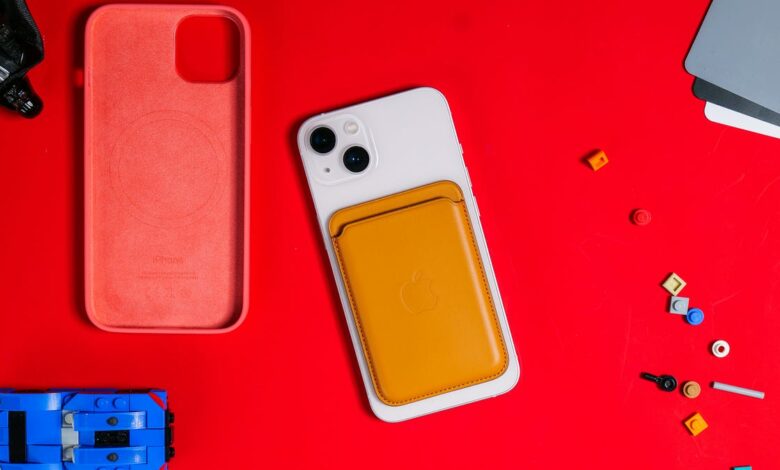
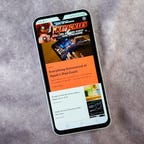
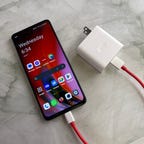
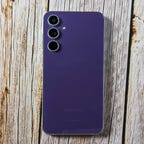
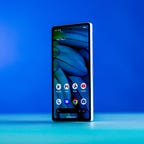
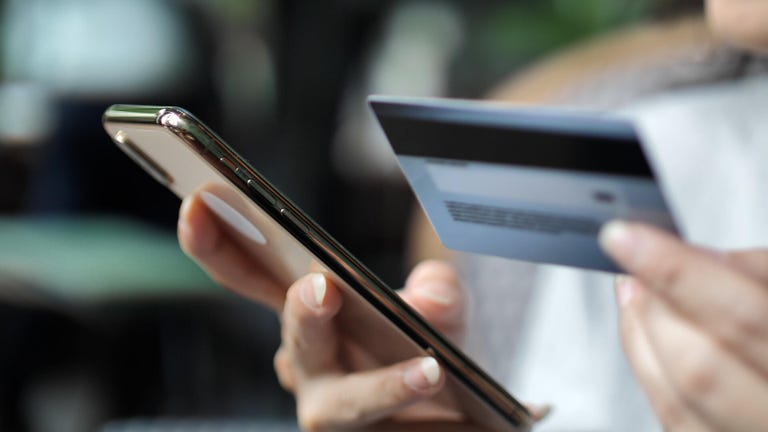
Prepaid phone carriers are constantly touting deals and promotions on cellphone plans. Most prepaid phone operators are owned by or closely affiliated with AT&T, T-Mobile or Verizon. This means phones that work on postpaid plans generally also work on prepaid plans. For instance, T-Mobile is the owner of Mint Mobile, AT&T owns Cricket, and Visible is owned by Verizon Wireless. Other prepaid phone carriers like Boost Mobile and Google Fi give you access to those same networks along with competitive pricing and perks. This allows for a lot of flexibility when you sign up for a prepaid plan, because nearly any unlocked phone can be brought over.
Most prepaid phone carriers also sell devices, and while their promotions aren’t necessarily anywhere close to a “free iPhone,” you can still get smaller discounts when switching to a prepaid phone carrier. For this list, we took into account phones that are available directly from prepaid carriers, alongside value-filled phones you can buy unlocked.
Read more: Best Prepaid Phone Plans
What is the best prepaid phone of 2024?
Like with any phone choice, the best device is going to depend on what you are valuing the most from your phone as a communication device and as a camera. However, if device cost is the most sensitive issue alongside getting a cheaper prepaid phone plan, then the $200 Samsung Galaxy A15 5G is the option I can most recommend.
While prepaid phone carriers sometimes offer even cheaper options than the Galaxy A15, this Samsung phone is the lowest-cost way to get a device that includes 5G compatibility and NFC for contactless payments. Samsung provides the A15 with four major software updates along with five years of security updates, making it a secure phone to use for several years. That said, the device is a little sluggish in performance and the camera isn’t great, but if cost is the highest priority then the A15 is otherwise a great entry-level option for a prepaid phone plan.
Best prepaid phones of 2024
Samsung’s $200 Galaxy A15 5G is an easy choice for someone looking to buy a phone that will last for years. Samsung provides it with four years of software updates and five years of security support, which in this price range is unparalleled. Plus the phone supports 25W wired charging that in my testing was able to charge half of its big 5,000-mAh battery from empty in 30 minutes. I also like the eye-catching light blue option.
A $200 phone has to have some compromises. The Galaxy A15 5G feels sluggish compared to competing phones like Motorola’s $200 Moto G 5G and as an entertainment machine falls short with its single audio speaker that is blocked by accident when you hold the phone sideways for games and video. Photography, which is typically a weak point on phones in this price range, is similarly mixed with decent photography in outdoor environments while struggling to photograph lowlight spaces. This makes the Galaxy A15 5G an easy choice for when you just need a phone that can handle the basics, but you may want to consider other options if you are looking for the best pocket YouTube player in this price range.
The Pixel 8A is so good it makes the regular Pixel 8 almost feel irrelevant. It shares so much in common with its pricier sibling, from its selection of AI-powered features like Circle to Search to its cool aesthetic and powerful Tensor G3 processor, that it’s hard to see why anyone would buy the Pixel 8 instead.
The Pixel 8 does offer a marginally better camera system, a slightly larger screen and the ability to charge other phones and accessories wirelessly on the back of the device. But those features don’t feel significant enough to impact the buying decision for most people. As I wrote in my review, the Pixel 8A raises the bar for what a $500 phone should be. That also means I’ll be expecting more from the Pixel 9 this fall.
The $300 OnePlus Nord N30 5G includes a lot of features for the money, but its 50W charging speed is a standout for this price range. The phone can charge from 0% to 100% in 45 minutes, and most other phones that cost $300 or less need 90 minutes to two hours to do the same thing. Its large 6.72-inch 1080p display that runs at a 120Hz refresh rate also makes apps, games, websites and streaming video animate smoothly.
However it’s worth calling out that the 108-megapixel main camera — despite being an astounding megapixel number on a phone — takes photos that are only marginally better than what I usually see from phones in this price range. That means it can take good, detail-filled photos in outdoor settings with plenty of light. However photos taken in darker settings are a struggle for the N30, with indoor photos looking washed out or blurry.
The phone will also only get one software update to Android 14 (released in late 2023) along with three years of security updates — which is an average timeline for this price range yet still disappointingly short.
Samsung revived its FE line of devices this year with the $600 Samsung Galaxy S23 FE. The new phone largely takes the best specs of the Samsung Galaxy S22, including a fast (albeit two-year-old) Qualcomm Snapdragon 8 Gen 1 processor alongside a 50-megapixel main camera, and places it inside a colorful aluminum body that highlights a 6.4-inch 1080p display.
It results in a phone that provides an entry-level price for a device that features Samsung’s higher-end features, which include the desktop-optimized DeX mode and reverse wireless charging.
While researching my review of the Samsung Galaxy S23 FE, I found it provides a nice step up from Samsung’s A-series of phones with its power and photography. However, just like with the Galaxy S22, I did find that the Galaxy S23 FE’s battery life is shorter than I would prefer during my testing, but its 25W wired charging can help for a quick midday charge when needed.
Apple’s $599 iPhone 13 is currently the most up-to-date yet affordable option the company offers in its phone lineup, which includes a larger 6.1-inch screen with Face ID, 128GB of storage and all of the features included in iOS 17. While you can get a new iPhone SE at $429 that includes the same processor as the iPhone 13 with many equivalent features, it does so inside of a dated design that includes a smaller 4.7-inch screen and a comparatively small 64GB of storage space.
While I’d like to see Apple bring back a $499 iPhone option — perhaps by reviving the iPhone Mini design — for now Apple’s $599 iPhone 13 is one of the lower-priced ways to buy a larger-screen iPhone in new condition and get access to Apple’s services like iMessage.
Editor’s note: Google released the Pixel 8A, also $500. You can read our Pixel 8A review here. If you’re buying a Pixel 7A make sure it’s on sale.
Google’s budget phone took a leap forward in 2023 with the Pixel 7A, which offers many of the same benefits as the Pixel 7 but at a cheaper price. Like the Pixel 7, the Pixel 7A runs on Google’s Tensor G2 processor, meaning it has many of the same photo editing and language translation features as its pricier sibling. The Pixel 7A’s 64-megapixel camera also takes excellent photos that rival the Pixel 7’s in quality.
While we still like the Pixel 7, the Pixel 7A’s lower price makes it a better deal for most people. Otherwise, the main differences between the Pixel 7 and 7A come down to the former’s more durable build, slightly faster charging and its ability to wirelessly charge compatible accessories. The Pixel 7 also has a larger camera sensor that’s more sensitive to light, according to Google, but CNET’s Lisa Eadicicco didn’t notice much of a difference.
Finding the right price is key: A benefit to getting a prepaid phone plan over postpaid is that by buying your service upfront, you won’t otherwise be stuck on a contract nor do you need to get a credit check in order to sign up for a cellphone plan. However, it does mean that you are unlikely to receive a deep discount off of your next device when you aren’t bringing over an existing one, since many phone carriers offer hefty device subsidy incentives when signing up with a new postpaid plan or renewing an existing one. This means that device cost is going to be a very important issue when buying a phone to use on a prepaid plan, because you could be footing the entire bill.
Target your most important needs: You’ll want to decide whether you need a cheaper device that covers all of your essential functions or if you are OK with springing for a more expensive device with more capabilities.
Remember to shop around: While many US phone purchases are made through a phone carrier, most prepaid phone plans include a bring-your-own-device option. This means you don’t have to buy your handset from a prepaid phone carrier to sign up with them, which is helpful if you have one already or especially if you find a deal at another store for the same device. After purchase, you will instead sign up for a plan with your prepaid carrier and follow their directions for setting up your device with their service.
Make sure you buy a compatible device: Even though you don’t have to buy your phone from a prepaid carrier, you do need to make sure the phone you purchase is compatible with it. For instance, if you are buying a phone to use on Mint Mobile, you’ll want to make sure that it’s a device that’s compatible with T-Mobile’s network. Same with Cricket, running on AT&T. Same with Visible, running on Verizon. Most prepaid carriers will tell you what networks their service runs on, and that will help you match up what device you need from there.
Every phone on this list has been thoroughly tested by CNET’s expert reviews team. We use the phone, test the features, play games and take photos. We assess any marketing promises that a company makes about its phones. And if we find something we don’t like, be it battery life or build quality, we tell you about it.
We examine every aspect of a phone during testing:
- Display
- Design and feel
- Processor performance
- Battery life
- Camera quality
- Features
We test all the phone’s cameras (both front and back) in a variety of conditions: from outdoors under sunlight to dimmer indoor locales and nighttime scenes (for any available night modes). We also compare our findings against similarly priced models. We have a series of real world battery tests to see how long a phone lasts under everyday use.
We take into account additional phone features like 5G, fingerprint and face readers, styluses, fast charging, foldable displays and other useful extras. We weigh all our experiences and testing against the price so you know whether a phone represents good value.
Read more: How we test phones
Samsung Galaxy A14 5G specs vs. OnePlus Nord N30 5G, Google Pixel 7A, Samsung Galaxy S23 FE, Apple iPhone 13
undefined
| Samsung Galaxy A14 5G | OnePlus Nord N30 5G | Google Pixel 7A | Samsung Galaxy S23 FE | Apple iPhone 13 | |
|---|---|---|---|---|---|
| Display size, resolution | 6.6-inch FHD+ LCD display, (1,400 x 1,080 pixels), 90Hz | 6.72-inch FHD (1080p resolution); 120Hz refresh rate | 6.1-inch OLED; 2,400×1,080 pixels; 60/90Hz | 6.4-inch AMOLED display; 2,340 x 1,080 pixels; adaptive 120Hz refresh rate (60-120Hz) | 6.1-inch OLED; 2,532×1,170 pixels |
| Pixel density | 268 ppi | 391 ppi | 361 ppi | 466 ppi | 460 ppi |
| Dimensions (inches) | 6.6 x 3.07 x 0.36 in. | 6.51 x 2.99 x 0.32 in. | 6.00 x 2.87 x 0.35 in. | 6.22 x 3.01 x 0.32 in. | 5.78 x 2.82 x 0.3 in. |
| Dimensions (millimeters) | 167.6 x 77.9 x 9.1mm | 165.5 x 76 x 8.3mm | 73 x 152 x 9.0mm | 157.9 x 76.4 x 8.1mm | 147 x 72 x 7.65mm |
| Weight (ounces, grams) | 203g (7.19 oz.) | 195g (6.97 oz.) | 193g (6.81 oz.) | 209g (7.4 oz.) | 6.14 oz.; 174g |
| Mobile software | Android 13 | Android 13 | Android 13 | Android 13 | iOS 15 |
| Camera | 50-megapixel (main), 2-megapixel (macro), 2-megapixel (depth) | 108-megapixel main, 2-megapixel macro, 2-megapixel depth sensing | 64-megapixel (main), 13-megapixel (ultrawide) | 50-megapixel (wide), 12-megapixel (ultrawide), 8-megapixel (telephoto) | 12-megapixel (wide), 12-megapixel (ultrawide) |
| Front-facing camera | 13-megapixel | 16-megapixel | 13-megapixel, 4K @ 30fps | 10-megapixel | 12-megapixel |
| Video capture | 1080p at 30fps | 1080p at 30fps | 4K at 30/60fps | 8K at 24fps, 4K at 60fps | HDR video recording with Dolby Vision up to 4K at 60 fps |
| Processor | MediaTek MT6833V | Qualcomm Snapdragon 695 | Tensor G2 | Snapdragon 8 Gen 1 | Apple A15 Bionic |
| RAM/Storage | 4GB + 64GB | 8GB + 128GB | 8GB + 128GB | 8GB + 128GB, 256GB | 128GB, 256GB, 512GB |
| Expandable storage | Yes | Yes | None | No | No |
| Battery/Charger | 5,000 mAh | 5,000 mAh (50W wired charging) | 4,385 mAh (18W fast charging 7.5W wireless charging) | 4,500 mAh (25W wired charging) | Battery capacity not disclosed (20W wired charging, 15W MagSafe wireless charging) |
| Fingerprint sensor | Side | Side | In-display | In-display | No (Face ID) |
| Connector | USB-C | USB-C | USB-C | USB-C | Lightning |
| Headphone jack | Yes | Yes | None | No | No |
| Special features | 5G-enabled, NFC, 15W charging | 50W SuperVooc fast charging, 108-megapixel main camera, game mode, dual stereo speakers | 5G (5G sub6 / mmWave), IP67 rating, 18W fast charging, 7.5W wireless charging | Wireless PowerShare, Fast Wireless Charging 2.0, Samsung Knox with Samsung Knox Vault, IP68 water resistance | 5G enabled; MagSafe; water resistant (IP68); wireless charging; dual-SIM capabilities (nano-SIM and e-SIM) |
| Price off-contract (USD) | $200 | $250 | $374, $549 (mmW) | $550 | $599 (128GB), $699 (256GB), $899 (512GB) |
| Price (GBP) | £179 | Converts to £199 | £298 | £438 | £599 (128GB), £699 (256GB), £899 (512GB) |
| Price (AUD) | AU$379 | Converts to AU$385 | AU$576 | AU$847 | AU$1,099 (128GB), AU$1,299 (256GB), AU$1,649 (512GB) |
Should you buy a cheaper new phone or an older phone?
While prepaid phone carriers sell a wide variety of phones — including many flagship phones from yesteryear — for our best prepaid phones list, I’ve focused the picks on phones that are currently available unlocked from a phone maker in addition to phones you can buy directly from a carrier. This is partly because of software and security updates — each of these picks will receive at least one major software update and at least three years of security updates, which extend the lifespan of these phones.
It’s an important distinction, because even though you can buy a device like the Samsung Galaxy A03S from Mint Mobile for $126, that device is no longer receiving security updates. This means the phone is no longer as safe to use as a lower-cost device that is still receiving active vulnerability protection from its phone maker.
As a result most picks on this list are phones that have been released within 2023-24, with the exception of Apple’s iPhone 13. This is because Apple’s phones historically receive many years of software and security support — for instance while Apple recently sunset major iOS software updates to 2017’s iPhone X and iPhone 8, both devices are still receiving security updates. This allows us to be quite confident that Apple will be providing many more years of software and security updates to the iPhone 13, even as the device enters its third year on the market.

Watch this: Best Budget Phone Plans in 2022 (and the Fine Print)








